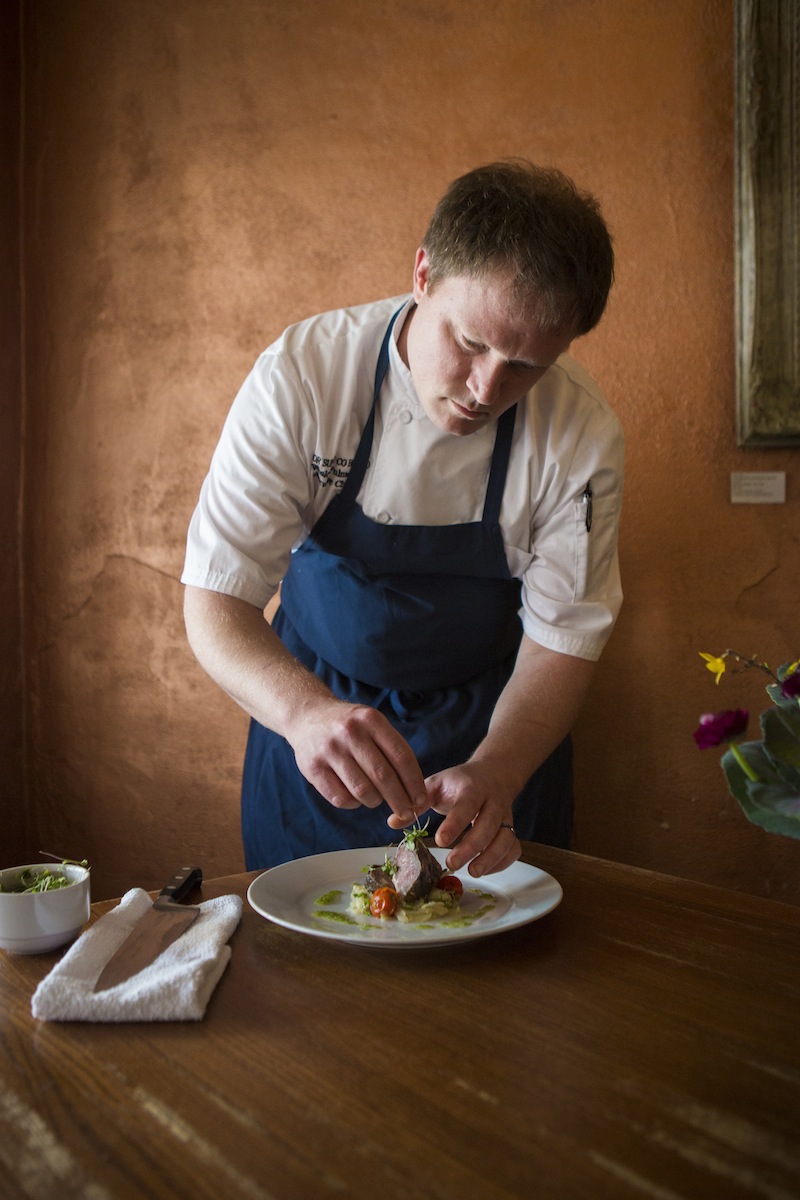
The philosophy at Motor Supply Co. Bistro is to cook with passion and conviction in everything that they do. Chef Wesley Fulmer said that it says something when you get immersed in the culture around you and there is a bond created between the cook, the culture, and the ingredient.

“This is what inspires me to not only try to emulate the cooking techniques used in different cultures, but to search for the roots of dishes and heritage behind their ingredients,” he said. “To us, going back to a dishes’ cultural roots and sharing this with our guests adds purpose to everything we do and cook.”
Fulmer, who has been at the helm of the Motor Supply since the spring of 2014, said his passion for cultural food ties began to grow after watching the Netflix docuseries, High on the Hog, which chronicles the direct influence that African cultures and foodways have on American Southern cuisine.
“It has always intrigued me to find out how, when, where, and under what conditions food is prepared, and it has almost become an obsession of mine to trace the origin of “Southern” staples like as okra, peanuts, and yams, and techniques like whole hog barbecue,” Fulmer said. “High on the Hog accelerated my interest in these ingredients and techniques and has inspired me to bring cultural heritage of Southern cuisine to the forefront at Motor Supply.”
You can find cultural heritage at Motor Supply from the conversations in the kitchen to the ingredients purchased and the way a dish is composed. From an ingredient standpoint, the restaurant looks at peanuts in a whole new light: They don’t just get raw green peanuts in and boil or roast them, they use an heirloom variety grown by Nat Bradford called the Carolina African Runner Peanut, which was brought to America in the 1600s by enslaved people who were taken from West Africa. Being one of the first peanuts harvested in America, its small size and hearty texture makes it a great peanut to use in stews and slow-cooked foods which was a big part of West African cuisine.

“We’ve been working it into a West African style peanut stew to give homage to this ingredient in its traditional use,” he says. “This is just one of the ways we celebrate the culture of where this ingredient came from and how it was used, and to show how much this style of cooking shaped modern Southern cuisine.”

Besides nourishment, food is a way to create memories and can be a method of preservation and cultural studies, he said, and it’s important to use the culture of food as a tool to inspire and connect. The dishes at Motor Supply stem from a longing to learn more about the ingredients that they cook with and their origins, and the hope is that guests can see the nod to cultural homage within each dish.
“I’ve always said from the time I cooked my first gumbo that if it doesn’t have okra in it, you can’t call it gumbo,” Fulmer says. “When I tell young aspiring cooks this, I let them know the word ‘gumbo’ is derived from a West African word for okra. It’s the little takeaways like this that make me proud to continue learning about food culture and truly respect where the roots of Southern cuisine lie.”
“I love what we do, the style of food we cook, the passion in our cooking and the cultural education we get through researching the ingredients. It gives purpose to what we do.”



